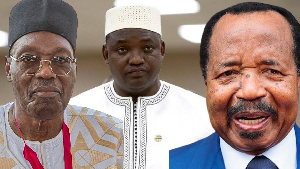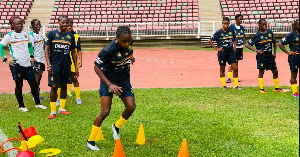The future of the continent’s forests, very much of a concern to President Biya, is an issue here in the Paris climate conference.
An issue which is not going unnoticed here in Paris is that of the future of Africa’s forests which are being depleted at a scandalous rate to meet energy requirements, especially for the low income segments of the African population. The question here is how to stem the trend by considering other energy sources which will, of course be cheaper and also safe the destruction of forests, the main stabilizer of climate in the continent.
African leaders are promoting a robust initiative to turn things around with the creation of the Great Green Wall, a kind of green band to run from Dakar to Djibouti with the aim of building up a kind of physical boundary between the afforested areas south of the Sahara and the Sahel as a way of checking the rapid extension of the Sahara desert. The project is in the works, but even before it really takes off, several issues have to be thoroughly addressed least not being the need to also concentrate on the rich green belt below, especially the Cong basin, humanity’s second largest after the Amazon.
For example, of what use will the initiative be if the wall is constructed without stopping the savage destruction of the forests of the Congo basin? If such destruction is not checked, sooner rather than later the population will once again turn to the new green belt of the Great Green Wall for wood destined for energy and the vicious cycle will continue. It is therefore imperative to turn attention to this important basin by ensuring that its resources are used sustainably.
In this wise, the African initiative on renewable energies recently launched by the African Union and being spearheaded by the Egyptian President Fatta al-Sissi is laudable and provides an extraordinary window of opportunity to provide cheaper, cleaner and more accessible source of energy for African homes. The objective of the initiative is to provide 10GW of energy by 2020 and take up production to 300GW by 2030. This new system will take off the pressure from our existing forests so that they remain not only a source for economic progress but also help in the reduction of carbon emissions as is the case today.
The African initiative is starting within good augurs. In Paris, France pledged to contribute, with immediate effect, some two billion Euros of the projected 10 billion Euros the project will cost. All measures whose overall objectives are to end up preserving Africa’s forests can only be welcome. In Cameroon, for example, the forestry sector accounts for about 22 per cent GNP and with forests covering some 22 million hectares or 46 per cent of total land area, and because Cameroon is Africa’s second largest forest reserve, one can quickly understand President Paul Biya’s regular calls for greater concern from the international community, especially with the financing of projects and contributions to climate change solutions.
At the Copenhagen summit on December 17, 2009 the President summoned the attention of the international community in the following manner: “In a general manner, I think it will be equitable that in future transactions concerning financing and the transfer of technology special attention should be given to the developing countries, notably those of the Congo Basin…They make enormous sacrifices to maintain and regenerate the second world forestry reserve after the Amazon, each of them being the breadbasket of the planet thanks to their capacity to retain carbon and to produce oxygen.” The Paris summit could be a wonderful opportunity in finding solutions to Africa’s forests.
Opinions of Saturday, 5 December 2015
Auteur: cameroon-tribune.cm














